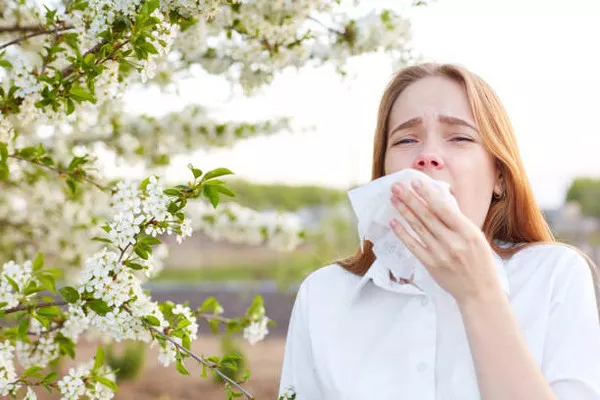Skin allergies are a common condition that can affect people of all ages. These allergies manifest in various forms, ranging from mild irritation and itching to more severe rashes, hives, and swelling. The root cause of a skin allergy is an immune system response to an allergen, which is any substance that the body wrongly identifies as harmful. These allergens can be environmental, such as pollen or dust mites, or they can come from direct contact with certain chemicals, fabrics, or foods. Skin allergies can be uncomfortable and may impact daily activities, but fortunately, there are several home remedies and lifestyle changes that can help alleviate the symptoms. This article will provide a detailed guide on how to get rid of skin allergies at home, discussing natural treatments, lifestyle adjustments, and practical tips for managing symptoms.
Understanding the underlying causes of skin allergies is important before jumping into treatment options. Allergic reactions occur when the immune system identifies a harmless substance as a threat, causing the release of chemicals like histamine. This response leads to inflammation, redness, itching, and swelling, which are the hallmark symptoms of a skin allergy. Common allergens include pollen, pet dander, dust mites, certain fabrics, cosmetics, and even some foods. Identifying and avoiding these triggers is an essential part of managing skin allergies.
How to Manage Skin Allergies at Home: Natural Remedies and Lifestyle Changes
There are various methods available to help manage and treat skin allergies at home. The key to effective treatment lies in the combination of natural remedies, over-the-counter options, and healthy lifestyle changes. Below, we’ll explore some of the most effective ways to manage skin allergies from the comfort of your home.
1. Cold Compresses for Instant Relief
One of the quickest ways to reduce itching, swelling, and inflammation caused by skin allergies is by applying a cold compress. Cold temperatures help constrict blood vessels, which reduces swelling and numbs the skin, providing instant relief from discomfort. To use a cold compress, wrap ice cubes or a cold pack in a clean towel and apply it to the affected area for about 10-15 minutes. Repeat this process several times a day to control symptoms. However, make sure not to apply ice directly to the skin, as this could cause frostbite. Using a cloth barrier will protect your skin.
2. Oatmeal Baths for Soothing Skin
Oatmeal is an age-old remedy for various skin irritations, including skin allergies. It contains anti-inflammatory properties that can help reduce itching and inflammation. Oatmeal also helps to moisturize the skin, preventing further dryness and irritation. Colloidal oatmeal, which is finely ground oatmeal that dissolves in water, is particularly effective for treating allergic reactions on the skin.
To prepare an oatmeal bath, add one to two cups of colloidal oatmeal to a warm bath. Stir the water well to ensure the oatmeal is evenly distributed, then soak in the bath for 15-20 minutes. Afterward, gently pat your skin dry with a soft towel. Be sure to moisturize your skin after the bath to lock in moisture and further soothe the affected areas. If you don’t have colloidal oatmeal, you can grind regular oats into a fine powder and use that instead.
3. Aloe Vera for Cooling and Healing
Aloe vera is another natural remedy known for its soothing, cooling, and anti-inflammatory effects. This succulent plant has long been used for treating burns, rashes, and other skin irritations, including those caused by allergies. Aloe vera gel can help reduce inflammation, relieve itching, and speed up the healing process.
To use aloe vera, simply cut open a fresh aloe vera leaf and extract the gel. Apply a thin layer of the gel directly to the affected area. Let it sit for 15-20 minutes, then rinse off with cool water. Aloe vera gel can be applied several times a day, making it a great option for ongoing relief. If fresh aloe vera isn’t available, you can also use store-bought aloe vera gel, but make sure it’s as pure as possible, with minimal added chemicals.
4. Coconut Oil for Moisturization and Relief
Coconut oil is an excellent natural moisturizer that can help with skin allergies. It contains medium-chain fatty acids, which are known for their anti-inflammatory properties. Coconut oil also has antimicrobial properties, which can help protect the skin from bacterial infections that might occur from scratching.
To use coconut oil for skin allergies, take a small amount of virgin coconut oil and rub it onto the affected skin. Massage gently until the oil is absorbed. This can be done several times a day to keep the skin moisturized and alleviate irritation. Additionally, coconut oil can help restore the skin’s barrier, preventing further allergens from penetrating the skin.
5. Baking Soda Baths to Soothe Itching
Baking soda is a household staple with a range of benefits, one of which is its ability to relieve itching and irritation caused by skin allergies. Its alkaline properties help balance the pH of the skin, which can soothe inflammation and provide relief from itching.
To create a baking soda bath, add about half to one cup of baking soda to a warm bath. Stir the water until the baking soda dissolves, then soak for 15-20 minutes. After the bath, gently pat your skin dry with a soft towel, and apply a moisturizer to lock in hydration. Baking soda can also be mixed with water to form a paste, which can be applied directly to itchy areas for localized relief.
6. Antihistamines to Block Allergic Reactions
Antihistamines are a class of medications commonly used to treat allergic reactions. They work by blocking histamine, a chemical released by the immune system during an allergic response. By inhibiting histamine, antihistamines can reduce itching, swelling, and other allergic symptoms.
Over-the-counter antihistamines such as diphenhydramine (Benadryl), loratadine (Claritin), and cetirizine (Zyrtec) can help relieve skin allergy symptoms. These medications are available in both oral and topical forms, so you can choose the option that works best for you. Be sure to follow the instructions on the label and consult a doctor if you have any concerns, particularly if you’re taking other medications.
7. Maintain a Clean and Allergen-Free Environment
Reducing exposure to allergens is an essential step in managing skin allergies. Environmental allergens, such as dust mites, pet dander, and pollen, can trigger allergic reactions. Keeping your home clean and free from allergens will not only help with skin allergies but also improve your overall health.
Here are some tips to reduce allergens in your home:
Wash bedding, curtains, and clothing in hot water regularly to remove dust mites and other allergens.
Use dust-mite-proof covers on pillows and mattresses to create a barrier between you and potential allergens.
Vacuum your floors and carpets regularly using a vacuum cleaner with a HEPA filter to trap dust and allergens.
Keep pets out of bedrooms and other areas where you spend a lot of time.
Use air purifiers with HEPA filters to remove airborne allergens and keep the air clean.
By reducing the number of allergens in your environment, you can significantly reduce the frequency and severity of allergic reactions.
8. Identify and Avoid Specific Triggers
Identifying the specific triggers of your skin allergies is crucial in preventing future flare-ups. Common triggers include certain foods, chemicals in skincare products, fabrics, or even changes in weather. If you suspect that a particular food is causing your skin allergy, try eliminating it from your diet for a period of time and monitor your symptoms. Similarly, if a specific skincare product seems to cause irritation, discontinue its use and opt for hypoallergenic products instead.
If you’re unsure of what’s causing your skin allergy, consider keeping a diary of your symptoms and potential triggers. This can help you pinpoint the cause of your allergy and take the necessary steps to avoid it in the future.
9. Wear Loose, Soft Clothing
Tight or rough clothing can irritate the skin, especially when it’s already inflamed from an allergic reaction. Wearing loose, breathable clothing made from natural fabrics like cotton can help reduce friction on your skin and prevent further irritation. Avoid wearing wool or synthetic fabrics, which can exacerbate itching and discomfort.
Additionally, try to wear light, cool clothing during the warmer months to prevent sweating, which can aggravate skin allergies.
10. When to Seek Medical Help
While many skin allergies can be treated effectively at home, there are times when medical intervention is necessary. If your symptoms worsen or do not improve after using home remedies, or if you develop signs of an infection such as increased redness, warmth, or pus, it’s important to consult a healthcare provider. Additionally, if your skin allergy is affecting your daily life or causing emotional distress, a doctor can help guide you through further treatments and medications.
In some cases, a doctor may prescribe stronger antihistamines, corticosteroids, or other treatments to manage severe allergic reactions. If the skin allergy is related to a food or environmental trigger, your healthcare provider can help with allergy testing and offer more personalized advice.
Conclusion
Skin allergies can be uncomfortable and disruptive, but with the right approach, they can be managed and treated effectively at home. Natural remedies like cold compresses, oatmeal baths, and aloe vera gel can provide immediate relief, while lifestyle changes such as maintaining a clean environment and identifying allergy triggers can help prevent future flare-ups. Over-the-counter antihistamines and moisturizing products like coconut oil can further support your efforts in managing symptoms. However, if your symptoms persist or worsen, it’s important to seek professional medical help to ensure proper treatment and avoid complications. With the right tools and knowledge, you can take control of your skin health and reduce the impact of skin allergies on your daily life.
Related Topics

































